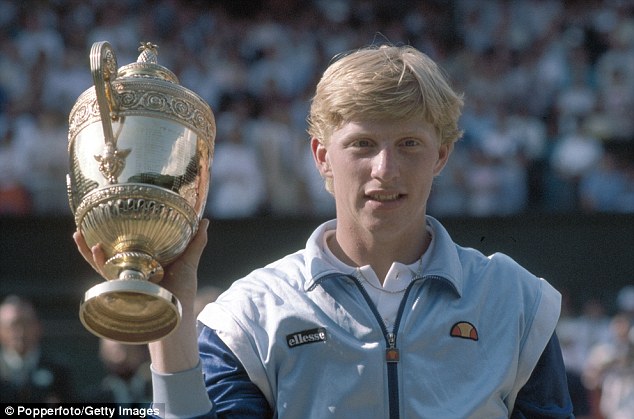A young German comet, Boris Becker, burst onto the global stage in 1985, clutching the Wimbledon trophy at just 17. It was a fairy tale, a moment etched into sports history, a testament to raw talent and sheer will. Yet, decades later, Becker himself reveals that this unprecedented triumph, far from being a pure blessing, unleashed a cascade of unforeseen challenges that tested his very core. The roar of the crowd, it seems, can echo with a subtle, disquieting loneliness.
The “Abnormal” Ascent: A Prodigy`s Paradox
Becker’s rise wasn`t just fast; it was, by his own admission, “abnormal.” While the world saw a phenom, he experienced an accelerated life where the usual developmental stages of youth were bypassed. This wasn`t merely a tennis victory; it was a detonation, irrevocably altering the trajectory of his existence. The notion that such a monumental triumph might not be helpful seems counterintuitive, almost heretical, to aspiring athletes and their fervent supporters. Yet, Becker`s candid reflection offers a rare glimpse into the profound psychological disequilibrium that can accompany premature superstardom.
The Nation`s Embrace – Or Invasion?
“I lost control when an entire country invaded my life.” This poignant statement cuts through the glamour, dissecting the very essence of sudden, overwhelming fame. When a private individual becomes public property, the boundaries blur. Every action, every decision, every personal moment becomes fodder for public consumption and judgment. The relentless gaze of millions, initially a source of adulation, rapidly morphed into an oppressive burden. One might reasonably question if, at 17, anyone is truly equipped to navigate such a wholesale surrender of personal autonomy. The irony is stark: achieving the pinnacle of individual sport often means losing the very individuality one possesses.
The Relentless Grind and the Gauntlet of Expectations
Playing 75 matches a season is not merely a job; it is, for many, an ordeal. For a young man barely out of his teens, this relentless schedule, coupled with the immense physical and mental demands of professional tennis, would be taxing enough. Add to that the unique pressure of defending a Wimbledon title at 18, facing the subtle whispers and overt declarations of “you won`t do it again,” and the task becomes truly Sisyphean. The expectations, both external from an expectant public and internal from a driven competitor, create a suffocating environment where the inherent joy of the game can be slowly eroded by the imperative to perform, perpetually.
The Loneliness of the Long-Distance Champion
Perhaps Becker`s most powerful revelation centers on the profound sense of loneliness he experienced. “All this leads to a strong sense of loneliness because you deal with the situation alone.” In a sport where success is measured by individual prowess, the support system, while undoubtedly present, cannot fully absorb the unique psychological weight borne solely by the athlete. The paradox of being globally celebrated yet profoundly isolated underscores a universal truth about high-stakes performance: the ultimate battles are often fought within. This solitude, not the public defeats, was arguably the greatest opponent Becker faced.
Redefining Success: The Early Exit
His decision to stop competing at 25, an age when many athletes are just reaching their prime, was not a surrender but a strategic retreat. “I wanted to be normal.” This remarkably simple desire encapsulates the utter exhaustion of a life lived under an unforgiving spotlight. It highlights a critical, often-overlooked aspect of athletic success: the human being beneath the superstar persona. Stepping away was, in his eyes, “the right thing to do,” a powerful declaration of reclaiming agency and prioritizing personal well-being over the relentless, often thankless, pursuit of more trophies.
An Enduring Legacy and Invaluable Lessons
Boris Becker`s journey offers a sober counter-narrative to the intoxicating myth of overnight success. It is a compelling testament to the often-invisible costs of achieving monumental feats at a tender age. His reflections serve as a crucial reminder that while the roar of the crowd is undeniably intoxicating, the internal peace derived from a well-adjusted life might, in fact, be the truest championship of all. For every aspiring young talent and every devoted sports enthusiast, Becker`s words underscore a vital lesson: true victory sometimes lies not in winning every match or accumulating every accolade, but in winning back control of one`s own life.

